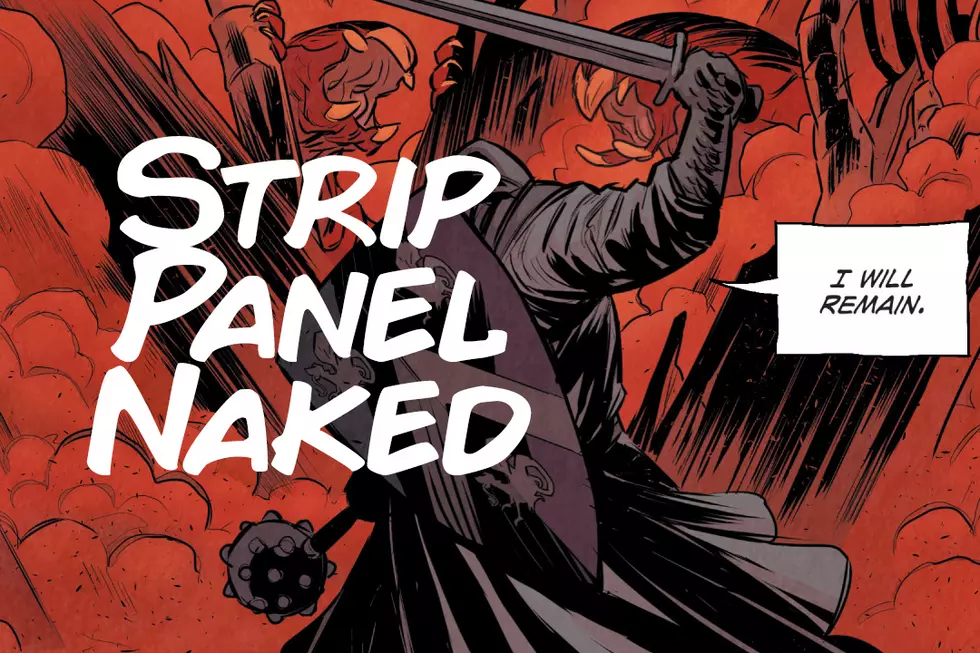
Why ‘Doctor Who’ is the Closest Thing in Existence to Superhero Comics

More than anything else I've seen in any other medium, the British sci-fi show "Doctor Who" is the closest analogue to superhero comics I've found, particularly regarding the sense of deep, timeless continuity and permanency of characters and ideas that stretch back for decades upon decades. I came to the show very recently -- within the past few months -- and I've since caught up on every episode of both the modern incarnation of the main show and its spin-off "Torchwood"; I've figured out who the writers are and the major pre-modern stories. It's been an experience very similar to both getting into comics for the first time as a kid and coming back in 2004 -- maybe there's a starting point with a new creative team, but you're still jumping into an ongoing story midstream and having to pick up the background from context (and the Internet).
It's appropriate, then, that last Saturday the first episode of the new season, Steven Moffat's "The Eleventh Hour," aired on BBC America, featuring new Doctor Matt Smith and new companion Amy Pond (Karen Gillan). It's excellent stuff, and those of us with the resources to fly to England every Saturday morning and return a few hours later after the show has aired know that the next two are of similarly high quality. Moffat -- nicknamed "Grand Moff Steven" in a Star Wars homage by gregarious nerds -- is known for doing the best standalone episodes of the Russell T. Davies run, the quiet psychological thrillers with the big twists. His writing is a lot of fun and exceedingly clever, and the kind of thing I imagine anyone who's into more cosmic comics would enjoy.
But how does it relate to comics? Well, this might be the fifth modern series, and the first of the Moffat run, but in the grand scheme of things it's season thirty-one. This show has a huge amount of history behind it, and nobody involved was there at the creation. Concepts have been regurgitated and reused throughout the decades -- the Cybermen, the Daleks, the Doctor/companion relationship, the Time Lords -- redefined and retconned for the purposes of storytelling by successive generations of writers, many of whom were previously fans.
Sound familiar?
Unlike soap operas like "General Hospital" where the stories are endless but the characters must age and die, "Doctor Who" trades in the immortality of its central concepts -- much as Superman will always swing back to the status quo of mild-mannered reporter Clark Kent, the Doctor must always swing back to the status quo of being a highly eccentric alien who flies around space and time with a female companion in a TARDIS disguised as a phone booth. He'll always fight Cybermen and Daleks and the Master (who, like the Doctor, has the Time Lord regeneration trick that allows him to be recast multiple times over the decades while including that fact in the story). It's how it is.
Again, much like comics, this everlasting continuity goes through creative changes, with the characters and concepts being interpreted in myriad different ways. While the show ever since its 2005 revival has always had a modern-style "showrunner" who dictates the general plot developments and ensures continuity between the other writers' scripts (as well as writing the main story episodes himself), each episode (which, despite season- and show-spanning character arcs, is usually fairly standalone) has its own distinct writer, usually with a rather distinct voice.

My time watching "Doctor Who" and "Torchwood" has shown me that these shows, and their fandom, place far greater value on the writers of individual episodes than many American TV shows seem to, to the point where the writers themselves become selling points to the episodes – for instance, everyone's excited for Neil Gaiman's 2011 episode because there's no question that it will be Neil Gaiman's take on "Doctor Who." Moffat will surely weave it into the grand narrative, but likely not too much since his own standalone episodes, generally bereft of connective tissue (despite the introduction of Captain Jack in "The Empty Child"), were largely considered the best of Davies' tenure. Indeed, each episode's title card includes not only the episode title (which I rarely see in American television) but also the writer's name featured very prominently, rather than flashing by in the bottom-left corner of the screen in the middle of a scene you're paying attention to.
Again, this really mirrors the relationship comic book writers have to a book's sales. People will show up to see a Gaiman or Moffat "Doctor Who" episode that wouldn't show up for Davies; simultaneously, the current comic book industry is driven by a similar combination of writer and character – people will show up for, say, Grant Morrison's "Batman" but not Paul Dini's. It's a refreshing change from sci-fi on American TV, and more than any other show on TV – certainly not the fractured "Star Trek" franchise or "Battlestar Galactica" – it carries with it that sense of history and legacy that so many people (including myself) find appealing about superhero comics.
In short: it's a lot of fun, and this is a perfect time to jump on. Moffat seems to be wiping the slate relatively clean with this new season, featuring all-new characters and new takes on existing concepts; it's absolutely an introductory season, and if you like brainy, whimsical, character-driven sci-fi, it's pretty much got my highest recommendation.
More From ComicsAlliance







![The Fourth Doctor Leaps Off The Screen Into Danger In ‘Doctor Who: Gaze Of The Medusa’ [Review]](http://townsquare.media/site/622/files/2017/01/4D_01_featured.jpg?w=980&q=75)

